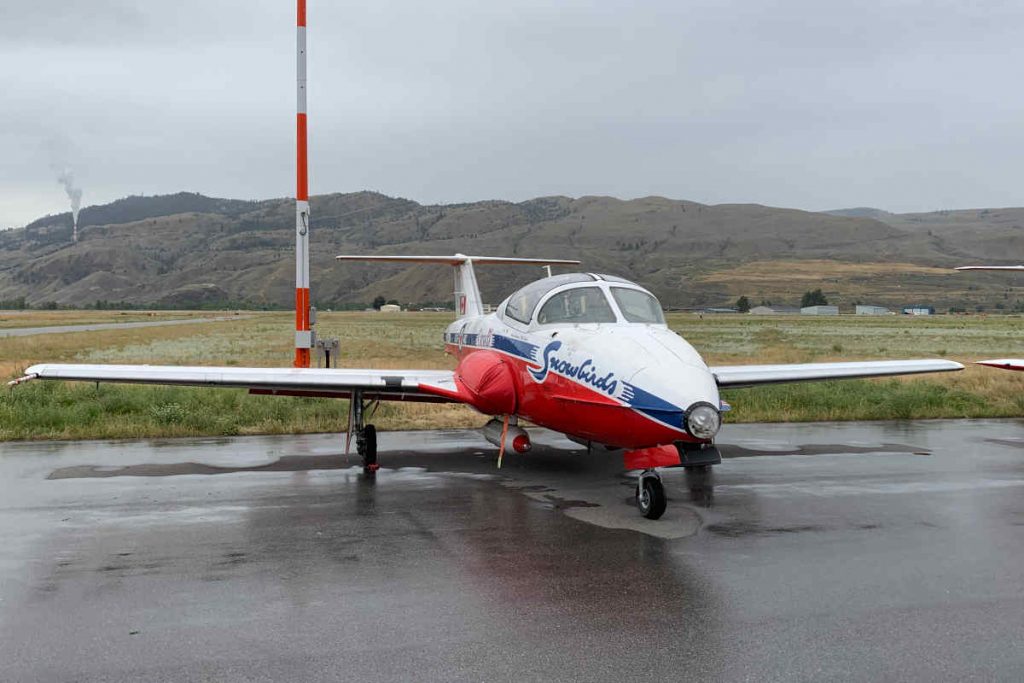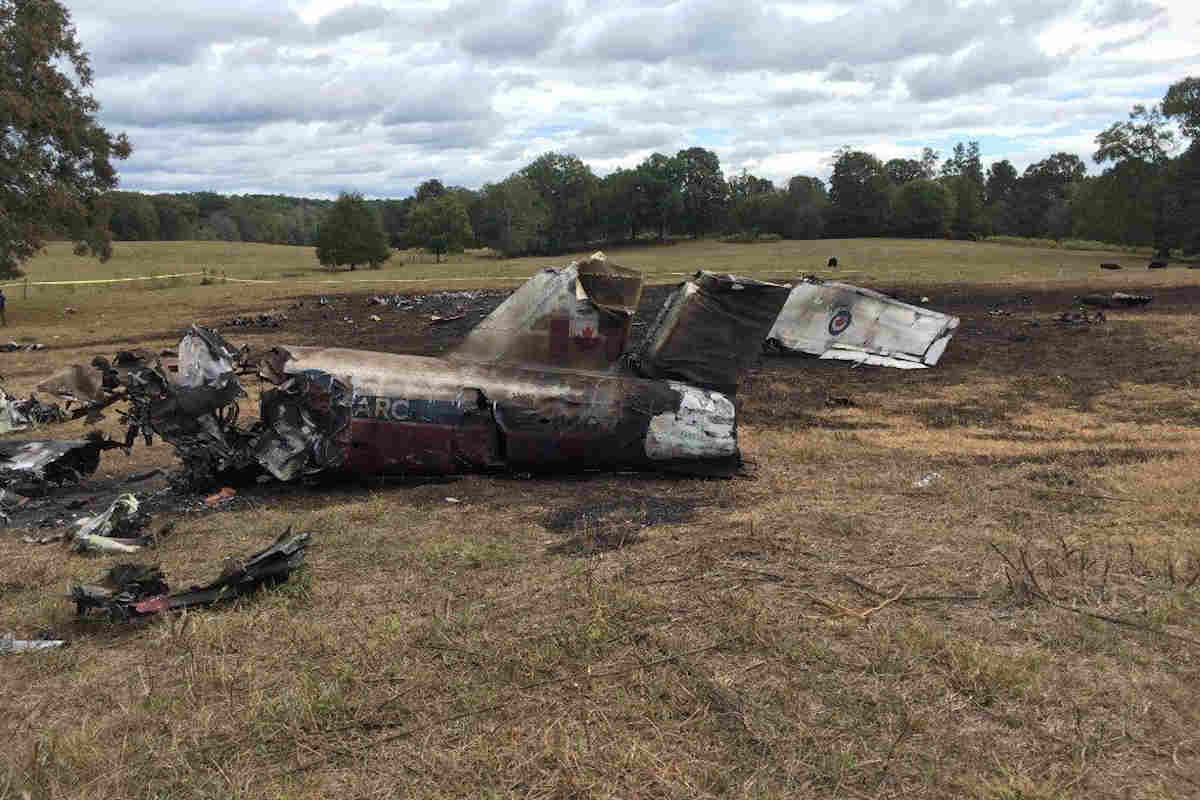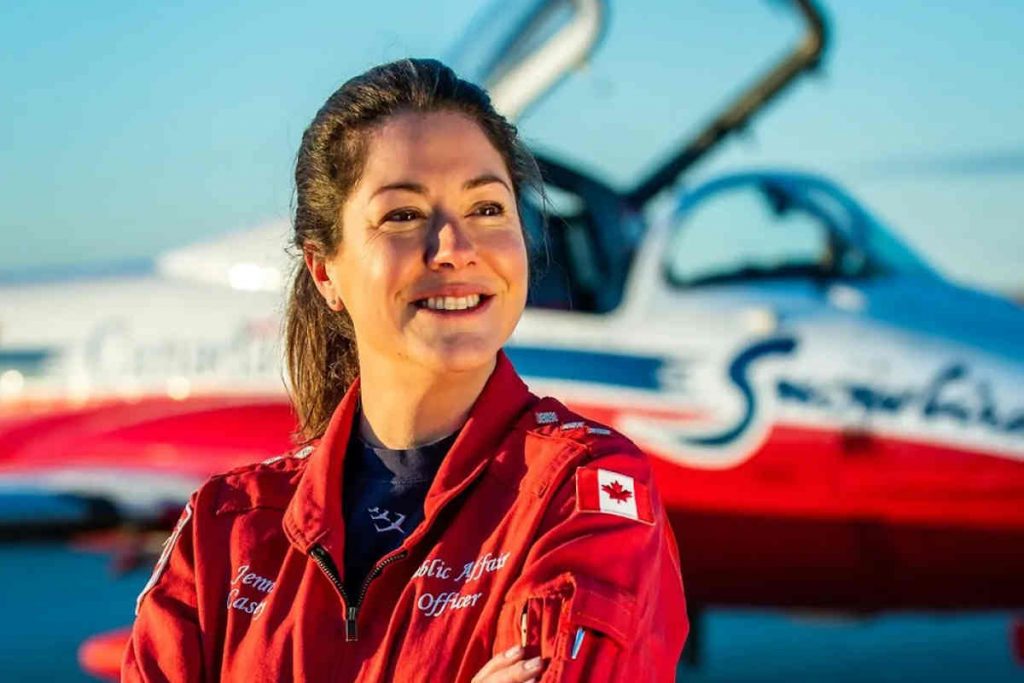
News
Military
Operational pause of Snowbirds fleet lifted
August 24, 2020 By Helicopters Staff
 A Snowbirds CT-114 Tutor photographed in August 2020. (Photo: Canadian Armed Forces)
A Snowbirds CT-114 Tutor photographed in August 2020. (Photo: Canadian Armed Forces) Brigadier-General Denis O’Reilly, Commander of 2 Canadian Air Division, today lifted the operational pause on the CT-114 Tutor fleet of the Canadian Forces Snowbirds demonstration team, operated by the Royal Canadian Air Forces’ 431 Squadron based out of 15 Wing Moose Jaw, Saskatchewan.
The RCAF has a total of 23 CT-114 Tutor aircraft, including 18 at 431 Squadron. There are also five CT-114 aircraft at the Aerospace Engineering Test Establishment at 4 Wing Cold Lake, Alberta, which are nearing retirement.
The CT-114 Tutor fleet was put on an operational pause following the May 17 accident in Kamloops, BC, which killed the team’s public affairs officer Captain Jennifer Casey and seriously injured pilot Captain Richard MacDougall. During the accident, the Snowbirds were taking part in the mission Operation INSPIRATION, which began on the first weekend of May, flying across the country from east to west to lift the spirits of Canadians and to help recognize those doing their part to fight the spread of COVID-19.
Canadian Forces Snowbirds jet crashes in Kamloops, killing 1
The Department of National Defence states the CT-114 Tutor’s return to flying operations follows a technical and operational risk analysis that has outlined a series of risk-mitigation measures. Due to the fact that there were two CT-114 Tutor accidents within eight months, explains National Defence, the scope of the analysis was designed to be deliberate, detailed and broad to enhance the general safety of the CT-114 Tutor operations.
“The risk analysis for the CT-114 Tutor fleet undertaken by the airworthiness authorities and their teams of experts was detailed and thorough,” said O’Reilly. “I have the utmost confidence in their work, and the mitigation measures developed. These measures will enable the fleet to return to flying operations.”
The risk-mitigation measures being implemented place some restrictions on flying operations and focus on increased maintenance requirements. A Directorate of Flight Safety (DFS) investigation into the Kamloops accident continues. National Defence explains once the DFS investigation is complete, the RCAF will determine if further mitigation measures are required.
National Defence notes the DFS investigation into the Kamloops accident is focusing on environmental factors, including a potential bird strike, as well as the performance of the escape system – as is the case in all ejection-related accidents. A preliminary From the Investigator report was published on June 1, 2020.
Bird strike possible cause of fatal Snowbirds accident
The DFS investigation into the Georgia accident, which occurred on October 13, 2019, determined that the most probable cause of the accident was a fuel delivery system failure within the engine. En route to an air show in Altanta, the pilot safely ejected from the CT-114, but reported anomalies with the ejection sequence and the parachute opening.
The remainder of the Snowbirds 2020 air demonstration season remains cancelled, with 431 Squadron team members first focusing on gradually returning to flying operations. With the operational pause lifted, the CT-114 in Kamloops, B.C. will return to 15 Wing some time over the next two weeks.
“The Snowbirds continue to mourn the loss of Captain Jennifer Casey. The best way we can honour her is to get back into operations in a safe and deliberate manner,” said Lieutenant-Colonel Denis Bandet, Commanding Officer, 431 Air Demonstration Squadron. “While we are saddened that the 2020 air demonstration season is officially cancelled, and that we will not be completing Operation INSPIRATION, the team is looking forward to getting back in the air and starting to train for next year’s season.”

